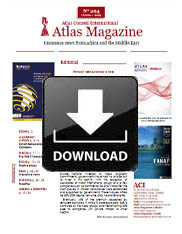African reinsurance is fine
 Click to download Click to downloadthe magazine |
In contrast to direct insurance, African reinsurance underwriting shows a better geographical balance. The South African giant's share was limited to only 37% in 2022, compared with 65% in direct insurance. In reinsurance, Johannesburg does not concentrate all premiums. Places like Lagos, home to Africa Re and Continental Re, and Nairobi, with Kenya Re and Zep Re in particular, are very active, while North Africa is home to two top 5 companies, SCR (Morocco) and CCR (Algeria).
Furthermore, African reinsurance is highly concentrated. The top five reinsurers accounted for 54.8% of premiums in 2022, and the top 10 for 75.8%. On a global scale, and still in 2022, this breakdown was 44.5% for the top five and 69.2% for the top 10.
Another distinctive feature of African reinsurance is that it is predominantly non-life. In 2022, non-life reinsurance accounted for 89% of total underwriting, while life reinsurance represented only 11%. Worldwide, the life/non-life split is 29% and 71% respectively.
The buoyancy of the African reinsurance market is largely due to the political will of governments. As an act of sovereignty, and to offset the reluctance of private national investors to make long-term commitments, governments have had no choice but to invest in this activity. With the exception of subsidiaries of major international groups and a few companies such as Continental Re and Waica Re, the main players in African reinsurance were established and supported by governments. These include Africa Re, SCR, CCR, Zep Re, Kenya Re, CICA Re and Ghana Re.
Eventually, 44% of the premium accepted by reinsurers domiciled in Africa is state-sponsored, 36% is controlled by the major groups, and the remaining 20% goes to companies with private African or other capital.